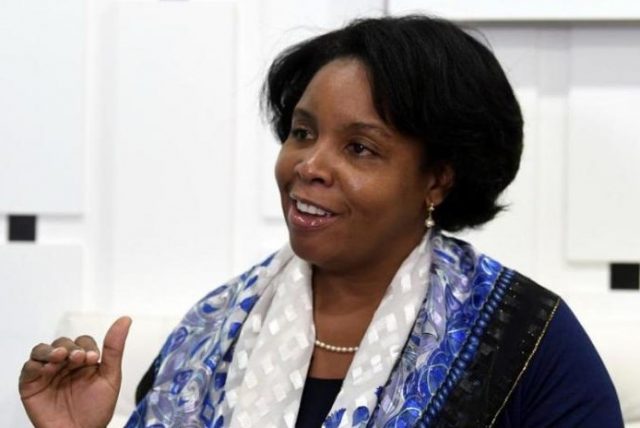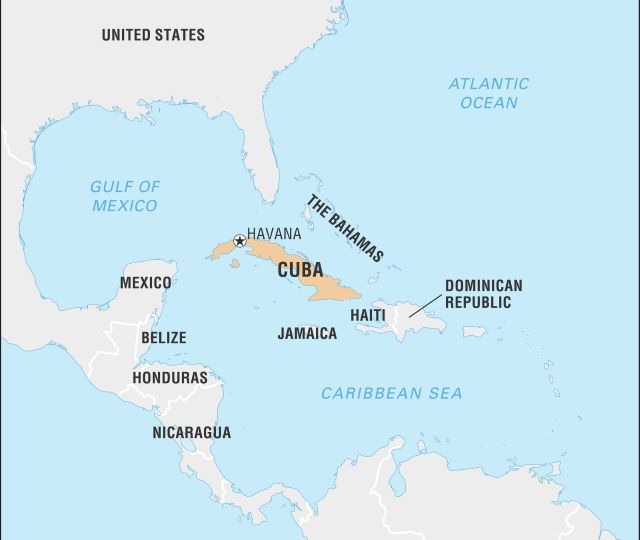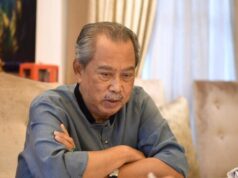

By R.Ravichandran
KUALA LUMPUR — A large number of Cuban healthcare professionals and personnel – some 1455 doctors, nurses and health technologists – are on the frontline in various parts of the world to help fight the COVID-19 pandemic, said Cuba’s Ambassador to Malaysia Ibete Fernandez Hernandez.
She said there are currently 22 Cuban medical brigades serving overseas for this purpose – 14 in Latin America and the Caribbean, three in Europe, four in Africa and one in the Middle east (Qatar).
Among the countries are Italy, Nicaragua, Jamaica, Andorra, Venezuela, Haiti, Dominica, South Africa, Togo, Suriname and Grenada. And there is an advisory team working in Mexico providing technical assistance.
Cuba’s international solidarity and sacrifice in the fight against COVID-19 came amid the US embargo against the Caribbean island nation of some 11 million people, officially imposed in February 1962, which has affected all sectors on the island nation for almost six decades.
According to ‘Cuba’s Report Against the Blockade’ released in July 2019, damages caused by the blockade amounts to US$922.63 billion.
“Solidarity and internationalism are values that identify Cuba as a nation. Both have been present since our independence struggles and their maximum expression was reached when the Revolution triumphed in 1959, expressing themselves in collaborative actions in different sectors, essentially education and health,” Hernandez said.


“In the case of the current pandemic that affects the world, Cuba contributes with health personnel, either to advise local governments on how to treat the epidemic or to work in the field with the doctors of the countries and also with Interferon Alpha 2B, manufactured by Cuba. It is not the only drug used to confront the pandemic, but it is one of the most used for the treatment of COVID-19, especially in aerosol form.”
On Cuba’s willingness to send its healthcare professionals overseas despite the risks and constraints Cuba is facing due to the embargo, the Cuban Ambassador said that practising solidarity is an incorporated value of Cuba as a nation and “we exercise it whenever there is someone in need”.
“Cuba has sent medical brigades to the countries that have requested their collaboration. Cuba has a national health system, organised with prevention and control as premises, that allows this type of collaboration. The COVID 19 outbreak has put humanity to the test in its ability to give, share and help, in stripping itself of selfishness. It is time to show solidarity by saving others, we save ourselves, that is my message,” Hernandez explained.
Even before its current international assistance in the fight against COVID-19, Cuba is known for providing medical services, medical assistance and collaboration to many countries, especially during natural disasters.
In this context, Hernandez said that the history of the Cuban medical collaboration dates back to the early 1960s, the first being on May 21, 1960, to help Chile after being hit by a strong earthquake that caused great damage and loss to that country.
“Since that first solidarity mission in 1960, Cuba has been present, with more than 36 Emerging Medical Brigades in more than 20 countries that have been affected by different catastrophes such as earthquakes, hurricanes, floods, epidemics, and volcanic eruptions,” she said.
In addition to the above, there are medical brigades in 60 countries with more than 30,000 collaborators (healthcare professionals and personnel) providing help, thanks to the potential of the Cuban health system under the principle that health is a right of the people, Hernandez said.
Besides medical brigades, Cuba’s assistance also involves the provision of materials – for example, in 1990 when Iran was hit by an earthquake that left a large number of victims, Cuba sent a medical brigade with 39 personnel and 39 tonnes of diverse material.
Besides that and among others, in the 1970s, Cubans were on the ground in Peru (1972 earthquake), Nicaragua (1972 earthquake) and Honduras (1974 hurricane). In the 1980s, Cuban solidarity to the international community during times of disasters was again evident in its assistance to Mexico (1985 earthquake), Nicaragua (1988 hurricane) and Armenia (1988 earthquake).
In the 1990s, Cuba sent aid to Iran (1990 earthquake), Honduras, Guatemala and Nicaragua ( Hurricane Mitch – 1998 ) and Venezuela (1999 flooding).
In the 2000s, Cuba, between 2000-2003, provided aid to El Salvador, Ecuador, Nicaragua and Honduras – affected by the dengue epidemic. Also, aid to Algeria (2003 earthquake), Guyana (2005 flooding) and Sri Lanka and Indonesia (the 2005 tsunami, where Cuba sent two medical brigades and more than 12 tonnes of different materials to each country).
In 2010, Cuba also rendered medical assistance and other materials to victims of the 2010 devastating earthquake in Haiti.
During the Ebola epidemic in West Africa in October 2014, Cuba’s 250 specialised doctors, nurses and other health workers constituted the largest medical operation on the ground in Sierra Leone, Guinea and Liberia.
Hernandez pointed out that Cuba has not only given but also received solidarity, as is the case of the participation of several foreigners in their liberation struggle, among them Henry Reeve (1850-1876), the American-born who participated in the First Cuban War of Independence.
To honour him, the Cuban government named the Cuban contingent specialising in disaster situations in 2005 after him. During Hurricane Katrina which hit the southern coast of the US in 2005, Havana’s offer to send aid was rejected by America.
Meanwhile, Xinhua news agency, in a recent report (March 28), quoted general secretary of Cuba’s Health Workers Union Santiago Badia as saying that 45 countries have so far asked the Caribbean nation for support in the face of the coronavirus epidemic.
He also said that over half a million Cuban health professionals have expressed their readiness to assist, if necessary, nations hit by COVID-19.
Xinhua reported that since 1963 when a ravaging earthquake hit Algeria, Cuba’s international medical collaboration has expanded to more than 164 countries, with some 400,000 health workers from the island nation having offered medical treatment across the globe.
— BERNAMA










